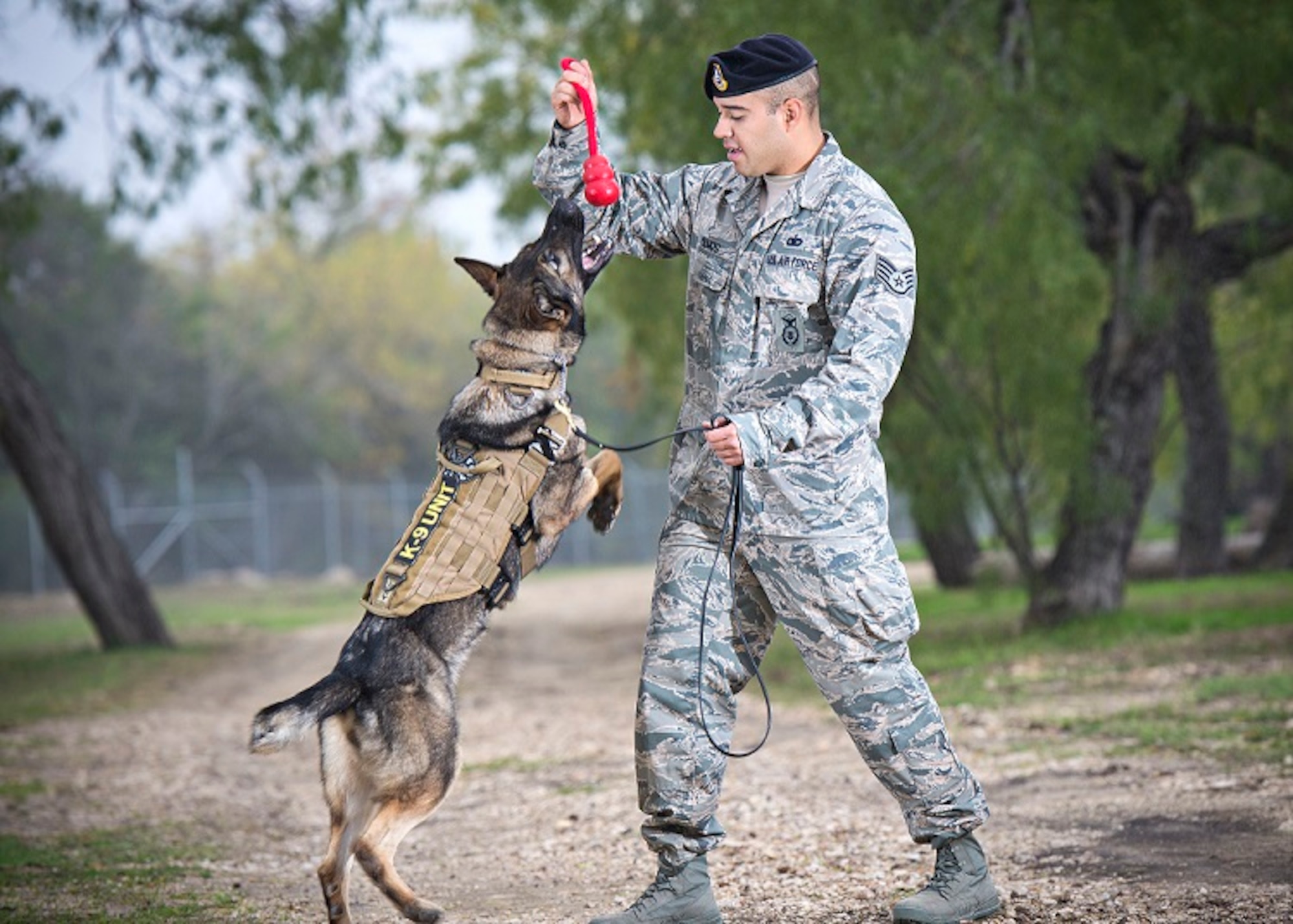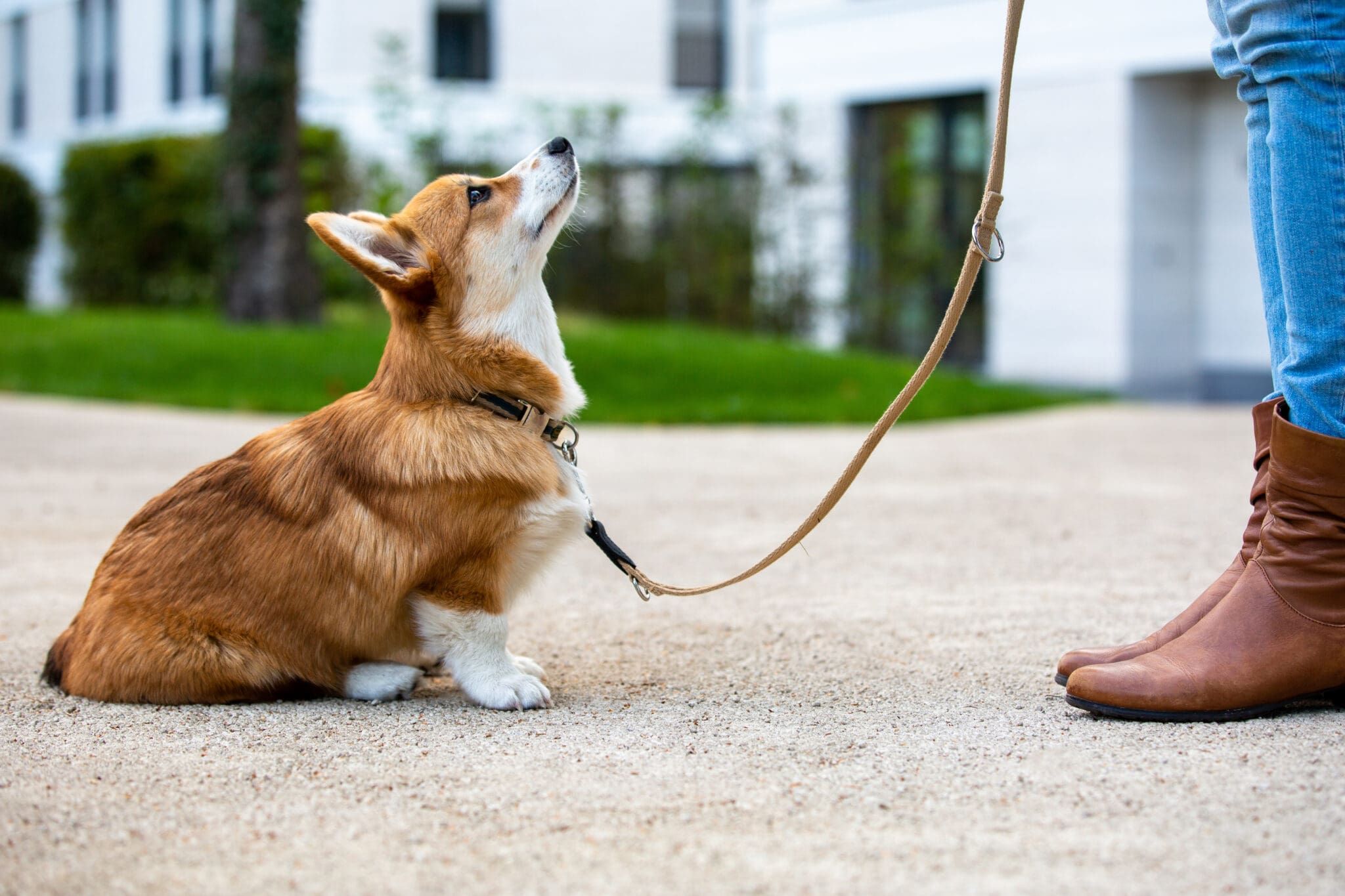Why Consistency is Key in Dog Training for Long-Term Success
Why Consistency is Key in Dog Training for Long-Term Success
Blog Article
Unlock Your Pet dog's Potential With Specialist Training Insights
Comprehending your canine's habits is extremely important to unlocking their complete potential. Specialist training insights expose that identifying communication signs and employing constant, favorable reinforcement can dramatically change your pet's reaction to numerous situations. Addressing certain behavior difficulties via tailored strategies not only improves obedience however additionally promotes a much deeper bond in between you and your canine companion. As we explore efficient socialization methods and progressed training approaches, one might question exactly how these strategies can change not just your canine's habits, however additionally your overall connection.
Understanding Your Pet dog's Behavior

In addition, understanding typical behavior issues such as hostility, anxiousness, or too much barking can help owners address issues proactively. Rather of punishing undesirable habits, it is extra effective to determine the underlying reasons and job in the direction of modifying those triggers. A canine that barks excessively may be looking for focus or reacting to environmental stimuli.
Moreover, each pet is one-of-a-kind, influenced by factors such as breed, age, and past experiences. Therefore, observing and comprehending your canine's certain actions is vital to creating a training approach that lines up with their personality. By fostering this understanding, owners can create an extra harmonious living atmosphere, improve their canine's knowing experience, and ultimately strengthen their bond.
The Relevance of Uniformity
Preserving consistency in training is vital for achieving wanted outcomes and strengthening positive habits in pet dogs. When training sessions adhere to a foreseeable framework, canines are most likely to comprehend what is anticipated of them. This quality cultivates a complacency and helps to establish a strong bond in between the instructor and the canine.
Irregular signs or commands can puzzle canines, causing frustration for both the pet and the trainer. If a command is often rewarded and various other times disregarded, the dog might come to be unsure regarding how to react. This incongruity not only obstructs the learning process yet can additionally inadvertently motivate undesirable habits.
In addition, consistency extends beyond spoken commands to consist of body language and tone. Dogs are very attuned to human actions, and discrepancies can weaken their trust fund. For effective training, all member of the family and trainers should be straightened in their method, utilizing the exact same commands and support methods.
Eventually, uniformity in training promotes an organized understanding environment, enabling pets to thrive and react favorably to commands. This fundamental principle is necessary for creating well-behaved, confident, and obedient buddies.
Strategies for Effective Training
Efficient training strategies build upon the foundation of consistency developed in previous sessions. Using favorable support is one of the most efficient approaches for encouraging preferred behaviors. This involves fulfilling your canine with treats, appreciation, or play instantly after they carry out the desired action, hence producing a strong organization in between the habits and its favorable result.
Timing is vital; rewards should be offered without delay to reinforce the connection. Furthermore, using clear and constant commands will aid your pet dog recognize what is expected of them. Select straightforward, unique hints and prevent making use of numerous phrases for the exact same action.
Including short, engaging training sessions can likewise boost retention and protect against boredom. Purpose for sessions lasting 5 to 10 minutes, gradually boosting the period as your pet dog ends up being more skilled. Varying the training environment can aid generalize learned actions, ensuring your pet can carry out commands in different contexts.
Last but not least, perseverance is essential. Every dog learns at their very own pace, and encouragement promotes a positive learning experience. By applying these techniques constantly, you can unlock your published here pet dog's full potential and reinforce the bond in between you and your canine buddy.
Socializing and Its Advantages
Socialization is a vital aspect of a dog's growth, dramatically affecting their actions and temperament. It encompasses the process of subjecting a dog to a selection of individuals, atmospheres, appears, and other pets. This direct exposure aids dogs find out to navigate the intricacies of their environments, promoting self-confidence and adaptability.
Correct socializing decreases the chance of fear-based behaviors and hostility, which can emerge from unfamiliar circumstances. A well-socialized canine is a lot more most likely to exhibit positive communications with both people and various other animals, causing an extra delightful experience for everybody entailed (Dog training). Socializing plays an important duty in enhancing a canine's general top quality of life, allowing them to participate in activities and outings without extreme stress and anxiety.
The essential period for socialization takes place between three and twelve weeks of age, although recurring socializing is advantageous throughout a dog's life. Participating in supervised playdates, young puppy courses, and gradual exposure to new experiences can promote this procedure. By prioritizing socialization, canine proprietors can cultivate an all-round buddy, geared up to manage different circumstances with poise and calmness, eventually bring about an unified relationship between the pet dog and its atmosphere.
Advanced Training Techniques
A well-socialized pet dog is better prepared to involve in advanced training her comment is here techniques, which can better fine-tune their abilities and improve their general behavior. Advanced training techniques, such as remote control dexterity, fragrance, and training work, need a solid structure of standard obedience and social skills. These approaches concentrate on creating a dog's cognitive capacities, improving their emphasis, and cultivating a much deeper bond between the pet and handler.
Dexterity training challenges dogs both physically and mentally, advertising control, confidence, and analytical skills. This can be a thrilling method for pet dogs to melt off energy while enhancing their responsiveness to commands.
Scent work use a pet dog's all-natural instincts, improving their olfactory capabilities while developing their concentration and patience. Incorporating these innovative training techniques not only stimulates a pet dog's mind yet additionally adds to their psychological wellness. Ultimately, participating in sophisticated training can change a well-socialized pet dog right into a well-rounded companion, with the ability of navigating complex atmospheres with simplicity and confidence.
Conclusion
In conclusion, unlocking a dog's capacity via specialist training requires a detailed understanding of habits, uniformity in methods, and reliable socialization methods. By prioritizing these aspects, an all-round and satisfying partnership in between pet and owner can be developed, ultimately leading to a mannerly friend and a harmonious conjunction.
As we explore effective socializing approaches and advanced training techniques, one might wonder just how these techniques can transform not just your canine's behavior, but additionally your total connection.
By focusing on socialization, canine owners can grow a well-shaped buddy, furnished to take care of different situations with grace and composure, ultimately leading to an unified connection between the dog and its setting. (Dog training)
A well-socialized pet dog is better prepared to engage in sophisticated training techniques, which can further fine-tune their skills and look at this site boost their total actions. These approaches focus on developing a dog's cognitive capabilities, boosting their emphasis, and promoting a deeper bond in between the pet dog and trainer.

Report this page